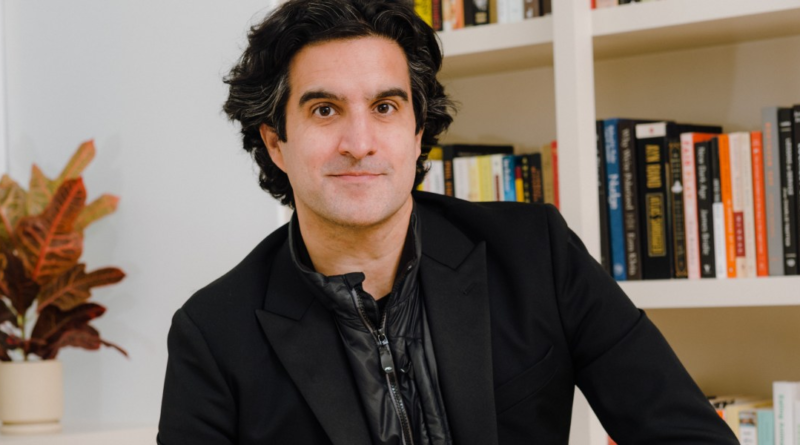How do I choose the right cofounder for my startup?
In this biweekly column, Andy Dunn—the founding CEO of Bonobos and Pie—offers advice on leading teams, building things, and surviving the startup life. Got a question for Andy? Ask it here.
What are pitfalls every founder should be aware of when searching for and deciding on a cofounder?–Brandon Ernest Clark
Hi Brandon! There are lots of ways that a co-founder relationship can go wrong. Before you jump into the intense commitment of starting a company together, I’d say that the relationship has to pass these five tests.
1. The stress test. First and foremost, you need to practice having difficult conversations, to see if you communicate well with each other under duress.
2. The test of time. You need to spend enough time with each other socially, getting to know each other’s friends and loved ones, and treating it like a marriage. (Which it is: The baby is the company.)
3. The role test. Discuss in advance who will own what functions at scale, and how decisions will get made as the enterprise grows. Whoever isn’t the CEO has to be comfortable that the more successful the company becomes, the more they will likely run just one function at some point.
4. The ‘when things go south’ test. One common pitfall is not discussing timelines for departure—because often, those timelines are not aligned. There are very few cases like Google, where a Larry and a Sergey hired an Eric and departed together. In almost all other cases, founders leave at different times.
For a good CEO and a company that’s working, that is usually an 8- to 15-year timeline. The better the company does, the longer the founding CEO will be there. The non-CEO cofounder will usually be there for half of that time, so you’ve got to think through vesting, refresh grants, how acceleration might work, and how one of you will raise it with the other if you want to go, or if you think they should go.
The presence of a third party, usually an angel investor, who is committed to helping you navigate issues can be helpful. VCs can do it as well, but that one’s tricky as they’ll almost always “believe the CEO.” This one is maybe the hardest test to pass, as it requires passing test #1 first: creating enough trust to be able to navigate difficult conversations.
5. The difference test. One common mistake: picking someone too similar to you. You want aligned values and an aligned passion for the mission—but very divergent skill sets.
If you can pass these five tests, it will be worth it. A great co-founder relationship is a beautiful thing. But if you cannot, it can be good to be a solo founder too! Just go hire a great team, and perhaps a co-founder will emerge from the ranks.
Under financial pressure from child care, mortgage, and unexpected expenses, I am striving to balance personal fulfillment and family support. I am torn between pursuing a job that personally motivates me (startup number three) and seeking a more stable role that provides for my family, even if it makes me feel kind of bored. – Tim F.
Hey Tim! Let’s assume you take the stable role for now. Your obligation to your family right now should outweigh your own malaise at being bored. The financial stress will keep it interesting, right?
And kids are not boring?
That said, if you’re truly suffering because of your work situation, and need to be more motivated – for example, if you are depressed, or a shadow of yourself in some way –something needs to change. It’s safe to assume that your family would rather have a father who is alive every day but not around enough than one who is properly around but not present.
There are multiple ways to not be present. One is physical absence, and the other is not showing up emotionally. And work-related smartphone addiction doesn’t help.
Re-read Little House on the Prairie. I always admired what that dad did. He always found a way to protect his kids and provide for the family. Whatever it takes, do that.
I’m not sure of your partner situation, but maybe there’s a moment where you can make a deal where your partner leans in on earning to fund child care, which gives you a chance to explore startup number three. Or your partner leans into being with the kids more, so you can take a boundaries swing at making the startup dream work.
From what I’m gathering, the important thing now might just be finding a not-boring non-startup job.
When I worked at a Fortune 50 company for three years, I was super happy. I was engaged. I was learning. I worked with great people. And my W-2 was a heck of a lot better in terms of guaranteed compensation. If you pick the right stable role, that doesn’t mean it has to be boring. I wasn’t an entrepreneur. But I was an employee at an entrepreneurial company.
Maybe that, for now, is the way to thread the needle. Three startups in a row sounds exhausting, for you, and for everyone around you.
Get the latest on venture capital and private equity deals and dealmakers by subscribing to the Term Sheet newsletter, delivered every weekday. Sign up here.




